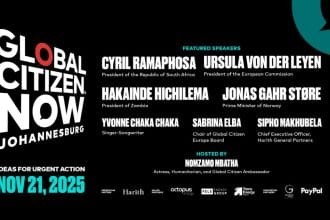As we move further into 2025, the financial landscape in South Africa remains challenging. With inflation, rising interest rates, and growing utility costs, more and more South Africans are facing the reality of living on a limited budget—often as low as R5 000 per month. While it may seem impossible to stretch such a tight budget, smart budgeting in 2025 can make all the difference. By being intentional with your spending and using the right tools, you can not only survive on R5 000 but also set yourself up for better financial health in the future.
- Understanding the Financial Landscape: What R5 000 Means in 2025
- Building a Budget That Works on R5 000
- Practical Tips for Stretching R5 000 Further
- Building Wealth on a Tight Budget: Smart Saving and Low-Cost Investments
- Free Financial Tools You Should Be Using
- The Role of Mindset and Support
- Smart Budgeting in 2025: More Is Possible With Less
Understanding the Financial Landscape: What R5 000 Means in 2025
South Africa’s economy has faced significant challenges in recent years. According to Stats SA, the Consumer Price Index (CPI) has consistently risen, with key costs like food, electricity, and transport pushing inflation higher. Electricity tariffs alone saw an increase of more than 12% in 2024, making it even harder to manage living expenses.
With only R5 000 to cover all your basic needs, the importance of smart budgeting cannot be overstated. The right financial strategies, paired with a disciplined approach, will help you manage this limited income without feeling overwhelmed.
Building a Budget That Works on R5 000
The 50-30-20 Rule: Adjusted for Low-Income Budgeting
The 50-30-20 rule is a tried-and-tested method for budgeting, typically allocating 50% of your income to needs, 30% to wants, and 20% to savings or debt repayment. However, when you’re living on R5 000, this might need a little tweaking.
Financial experts recommend adjusting this rule for tighter budgets:
“On a more limited income, a 60-10-30 split may work better—where 60% goes to needs, 10% to wants, and 30% towards savings or debt repayment,” says a Debtco advisor.
This adjustment allows you to prioritise the essentials, like rent, food, and utilities, while still leaving room to save and reduce debt. Tools like Old Mutual’s Budget Calculator can help you break down your monthly expenses and keep track of where every rand goes.
Practical Tips for Stretching R5 000 Further
Be Smart About Cutting Costs
Living on a tight budget doesn’t mean living without pleasure or comfort. It’s about making smarter choices:
- Groceries: Focus on buying in bulk, opting for house brands, and cutting back on takeaways.
- Transport: Where possible, use public transport, carpool, or join a lift club.
- Utilities: Consider switching to prepaid electricity to control your energy usage more effectively.
Additionally, setting clear financial goals is essential. One effective way to stay on track is by creating SMART goals (Specific, Measurable, Achievable, Relevant, and Time-bound).
“Setting SMART financial goals helps bring purpose and direction to your financial journey,” explains a Meerkat financial coach.
Even small savings—such as R50 to R100 per month—can have a big impact over time.
Building Wealth on a Tight Budget: Smart Saving and Low-Cost Investments
Surviving on R5 000 isn’t just about cutting back—it’s about preparing for the future. Smart saving and low-cost investments can help you slowly build wealth, even on a limited income.
Here are some investment options for small budgets:
- Tax-Free Savings Accounts (TFSA): You can save up to R36,000 annually without paying tax on the interest you earn.
- Stokvels: Joining a trusted savings group can help you save for big expenses or emergencies.
- Micro-Investing: Starting small with as little as R100 per month can give you access to unit trusts and ETFs, helping your money grow over time.
Small, consistent investments can lead to meaningful financial growth.
“Small, regular investments—such as R100 per month—help build financial habits that set you up for future success,” says Nedbank’s personal finance team.
Free Financial Tools You Should Be Using
In today’s digital world, free tools can be a game-changer when it comes to managing your finances. Here are some excellent resources to help you stay on track:
- Old Mutual Budget Calculator: Helps you structure and track your budget.
- Discovery Budget Tool: Offers personalised monthly budgeting advice.
- FNB nav» Money: This app categorises your expenses in real-time, helping you understand where your money is going.
By making use of these tools, you can take control of your finances and avoid common budgeting pitfalls.
The Role of Mindset and Support
Financial stress can take a toll on both your mental health and relationships, especially when you’re managing a tight budget. That’s why community support and a positive mindset are crucial to financial success.
Join online saving groups, attend free financial workshops, and don’t hesitate to ask for help if you need it. Financial literacy is a powerful tool that can help you regain control and make confident decisions about your money.
As Gauteng-based financial coach Thandeka Mokoena explains:
“Budgeting on a limited income is not just about surviving—it’s about finding peace of mind and gaining control over your finances.”
Smart Budgeting in 2025: More Is Possible With Less
Smart budgeting in 2025 is about resilience, planning, and discipline. Even with a limited income of R5 000, you can not only survive but thrive by being strategic with your finances. By using budgeting tools, making conscious spending choices, and investing in your future, you can build a more stable and prosperous financial future.
ALSO READ: South African Household Income Statistics 2022/23











